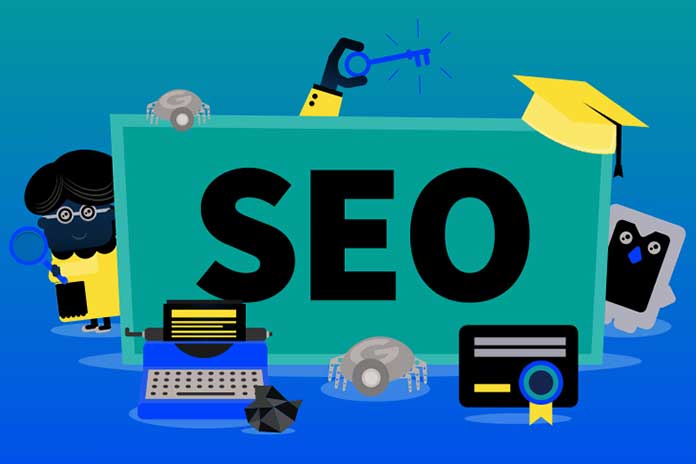We’ve identified five reasons you shouldn’t overlook SEO on your site. Do we bet that when you have read them all, you will no longer have any doubts about whether to do SEO on your site or not?
Without SEO, You Lose 75% Of Online Traffic Every Day
- A lovely saying goes: ” the best place to hide something is the second page of Google. “
- And it is. Just think that 0.78% of users who search on Google go as far as the second page.
- This means that, in practice, all users stop at the first page, indeed, at the first three results.
- Do you know what percentage of people click on the first result? 31.7 %.
What about the first three results? 75.1%. Incredible, right? So, if nearly a third of users stop at the first result, we agree that your site will need to be in this position, or at least on the front page, to be found by your audience. That’s why you need to do SEO on your site, whether it’s an e-commerce site or your company’s showcase site, and make sure it doesn’t go unnoticed by Google.
Without SEO, You Will Always Have To Resort To Paid Advertising
Both SEO and paid campaigns on Google (PPC) have their cost. The analysis of the site gives the cost of SEO – SEO audit – and by the implementation of the activities necessary for the site’s optimization. The cost of PPC campaigns – Pay per Click – is given by the budget you decide to invest in sponsoring your products or services. Both, therefore, involve an expense, but three significant variables play in favor of SEO:
- A page optimized and positioned on Google will bring you results in the long term, while a page sponsored through paid campaigns will disappear once you finish the campaign;
- The positioning you get on Google will allow you to be more authoritative in the eyes of users who surf. Also, people tend to trust organic results more than paid ads, so most of the time, they don’t even pay attention to them;
- The cost of paid campaigns depends on the keywords you want to sponsor your page for. In sectors where the price is very high – even € 5 per click – you must consider investing a considerable amount of budget to be first on Google. With SEO, on the other hand, you can manage to rank your content even for multiple keywords, and the investment required is lower than with PPC campaigns.
SEO Helps You Build Your Brand And Reputation
If your page ranks in the top Google search results, especially if you manage to do so for multiple keywords in the same industry, it makes sense that users will take your brand and site as a reference. In practice, you will gain authority and be seen as an expert in the field since you will be competent in solving their problems. In addition to pages dedicated to your company’s products and services, a blog or news area will help you intercept user searches and always be present in the search results.
SEO Increases The Conversion Rate On Your Pages
SEO techniques allow you to optimize your content for the keywords you think are most in line with your business goals. In other words, optimizing your pages and creating blog articles to push keywords related to the products or services you sell will allow you to increase conversions on your site. Also, consider that this probability increases dramatically if you have a page positioned in the top 3 Google results.
SEO Brings You The Greatest Return On Investment
While SEO has its costs and may initially give you the impression that it doesn’t bring any tangible results, it is in the long term that it pays its best. From this point of view, SEO, unlike PPC campaigns, is the one that has the greatest return on investment, almost 700%.
The question you should ask yourself to understand what is the most effective way to generate leads is “how many leads am I getting and how much did I spend to generate these leads?”. Many prefer PPC campaigns because they generate leads quickly, but they don’t consider how much they are spending each day to keep them active. Once done on your site, the SEO will continue to generate leads in the long term, even without having to rework the pages from time to time.


